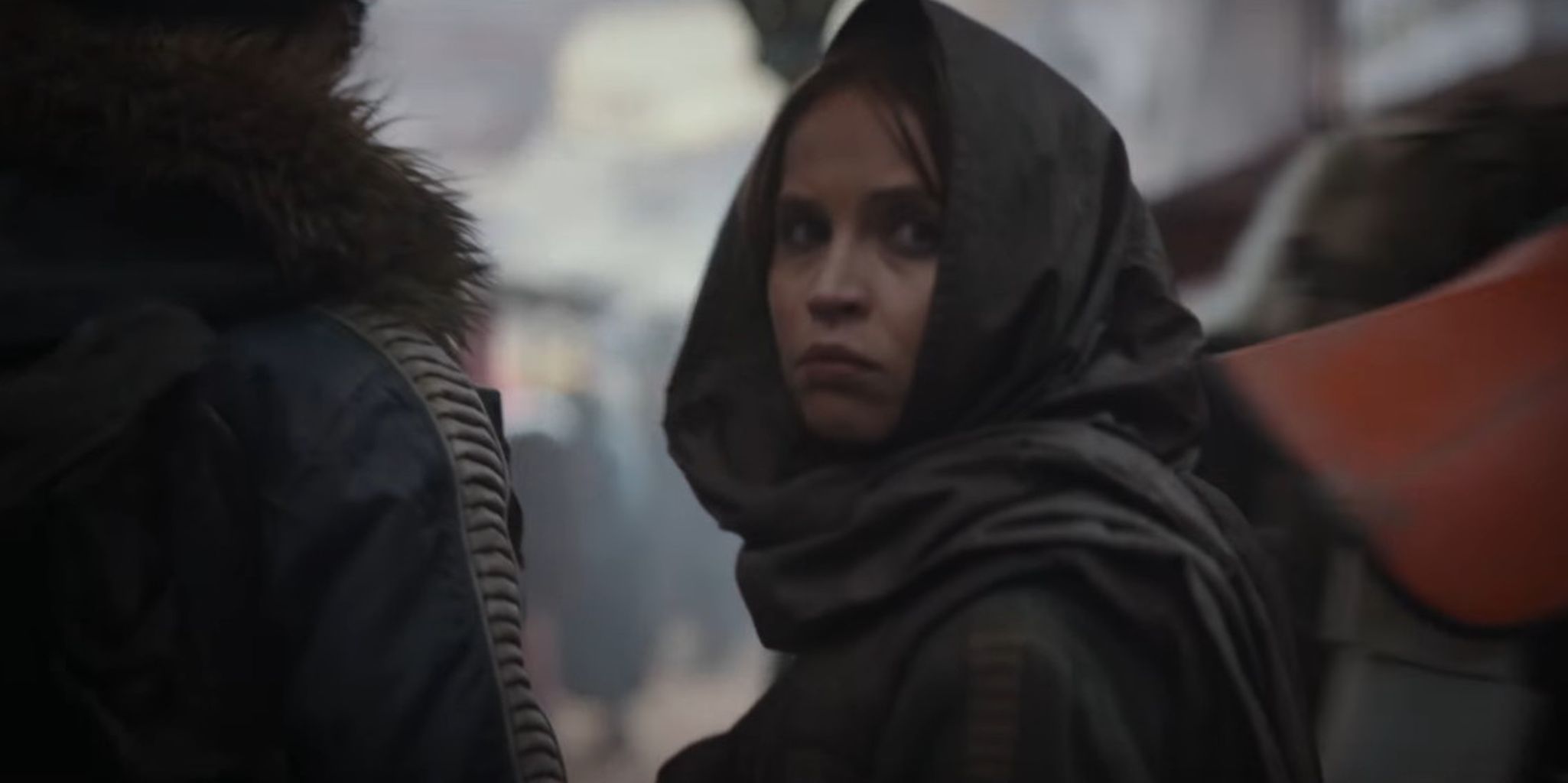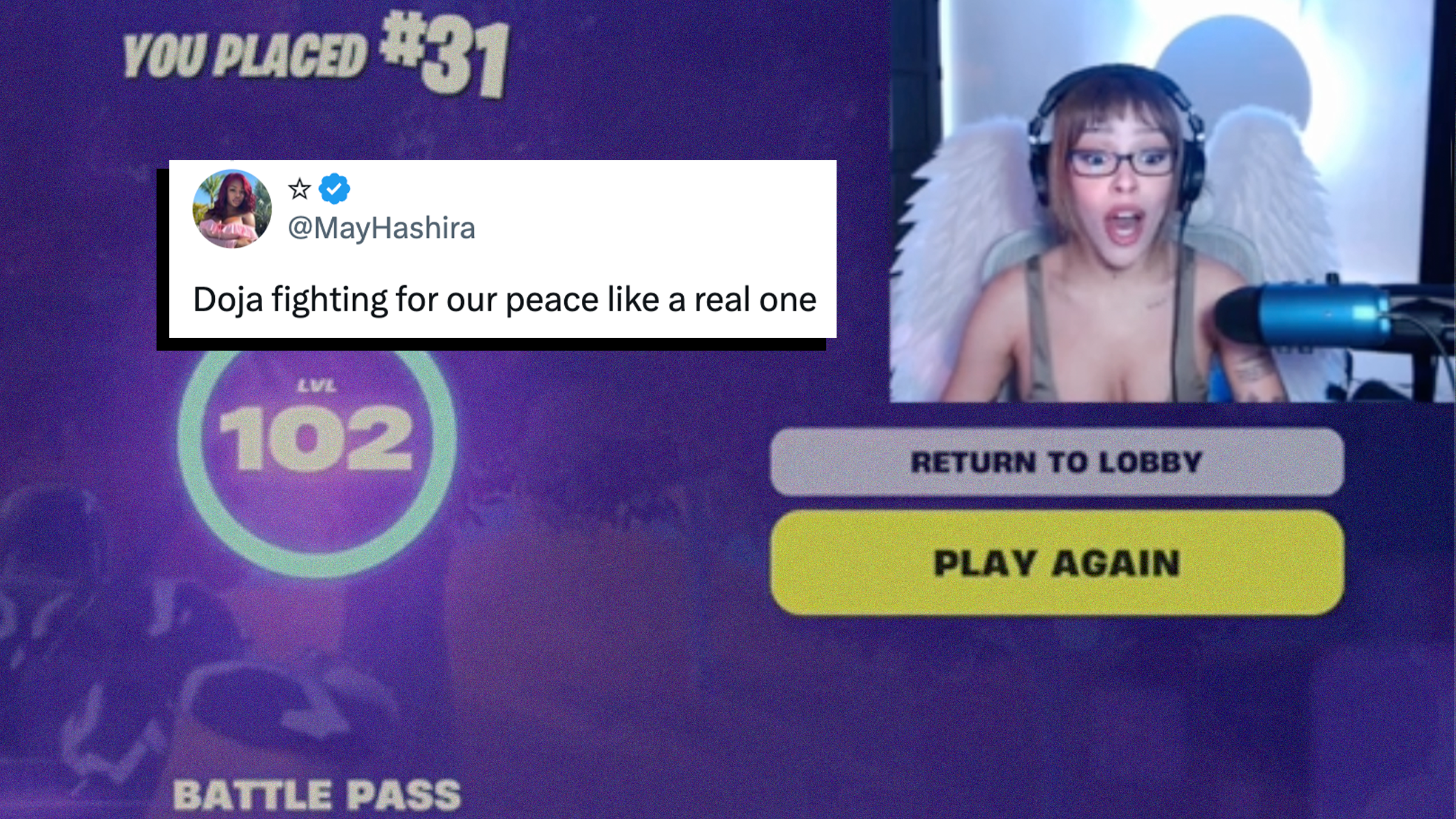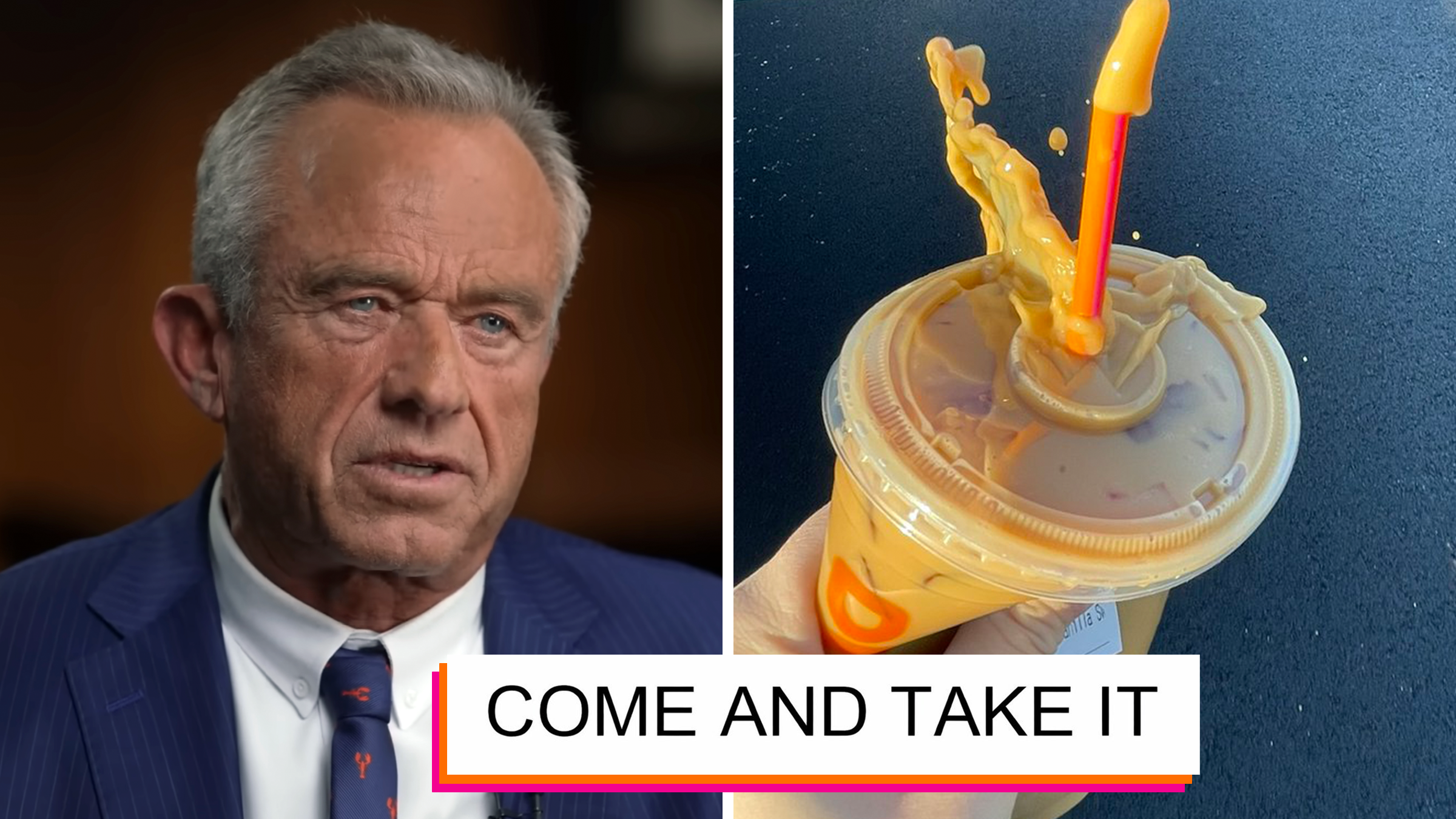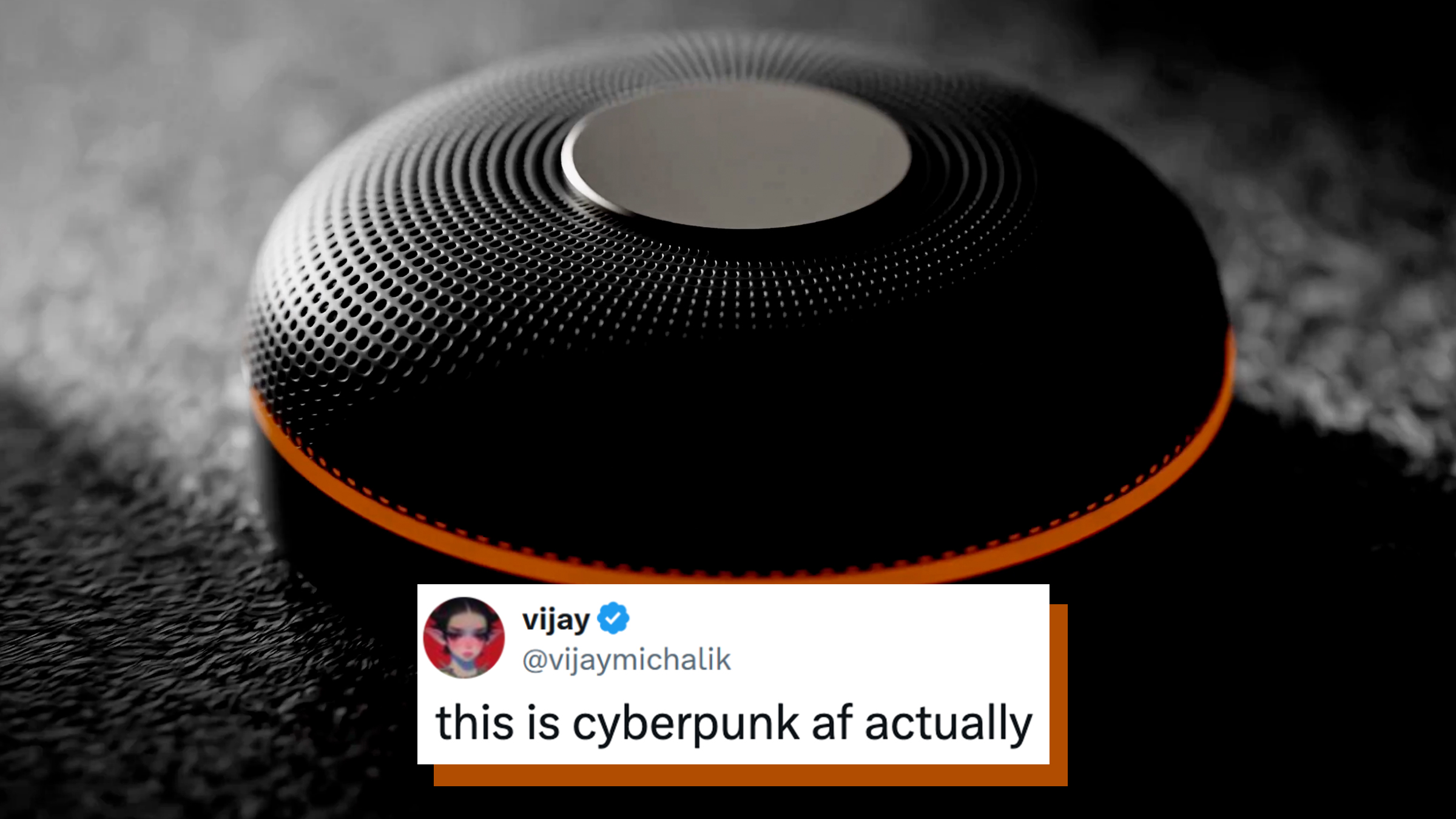In Rogue One: A Star Wars Story (which opens today), Jyn Erso (Felicity Jones) argues with her fellow freedom fighters that “rebellions are built on hope.” It’s a predictably rousing message, but one that has felt oddly timely ever since Nov. 9. In the wake of Donald Trump’s unprecedented ascendancy to the presidency, Jyn’s message of hope against an empirical dictator who rules with fear is one that can be shared by many.
Rogue One may not have been intentionally made as a mirror for our social-political climate, as Disney CEO Bob Iger insists. Then again its writer Chris Weitz did go on an anti-Trump tweetstorm last month, which led Trump supporters to boycott the film and rally behind a #DumpStarWars social media push.
Either way, the movie could not be more timely for Trump's America.
It doesn’t matter if you’re a member of the LGBTQ community, practicing Muslim, or anyone who is threatened by the racially charged promises of Trump’s campaign. It’s hard not to compare the struggles of the Rebellion—a small group of resistance fighters—with the marginalized groups of minorities who will now have to fight against racism, homophobia, and xenophobia on a much larger scale.
Trump may not be able to enact every single one of his campaign promises, such as building a wall across the border of the U.S. and Mexico, but the fear and hatred that permeated his campaign for the last 18 months will now take centerstage in the White House.
If you’ve seen the Star Wars films, especially the original trilogy, you’ll recall how the Empire rules by spreading fear against all those who oppose its ideology. The evil Emperor Palpatine holds a tight leash on Darth Vader and the systems they rule, pushing an agenda of absolutism throughout the galaxy. It didn’t take long for users of Tumblr and DevianArt to create manips of Trump as Palpatine during the campaign.
Reddit has even gone as far as compare Vice President-elect Mike Pence to Palpatine, opting to compare Trump to Palpatine’s apprentice, Darth Vader. Even before the general election, there was talk of Pence being the real puppeteer pulling the strings. After all, Trump has never held public office.
After the election, the transition process shifted from Trump overseeing cabinet appointments to Pence taking the charge. There’s been considerable speculation that Pence will be a very active vice president in Trump’s administration. Maureen Groppe of the Indianapolis Star notes that “he has the Washington experience and connections that President-elect Donald Trump lacks.”
If we’re going with that comparison, it’s hard to ignore how events played out in the original trilogy. Darth Vader was introduced in A New Hope as a diabolical villain who wasn’t afraid to use extreme measures to achieve his ends. In The Empire Strikes Back, he uses fear tactics to motivate his subordinates and find his enemies.
Throughout the campaign, Trump established himself as a domineering force on the campaign trail. It was his commanding presence that helped elevate him above the other nominees in the primary. He would often talk in hyperbole, utilizing fear (“Mexicans are stealing our jobs”), hatred (“all Muslims must be banned from the U.S.”), and promising extreme measures (“We’re going to build a wall and Mexico will pay for it”) to achieve results.
It wasn’t until later that we learned Emperor Palpatine was the one pulling the strings behind Vader’s villainy. If you’re familiar with the prequel trilogy—it is understandable if you aren’t, they’re terrible movies—you’ll see how Palpatine uses manipulation, fear, and xenophobia as tools to gain power.
Star Wars may be fantasy, but the comparison between an unhinged leader with bad hair and Palpatine suggesting everyone who practices a certain religion must be removed from the picture is hard to dismiss.
For its part, Rogue One centers around a small group of ragtag outsiders fighting against nearly insurmountable odds. Even though it is hard to determine how effective Trump will be as president (and ultimately how hard he’ll push certain agendas), it’s easy to look at the next four years as one big, against-all-odds battle.
Trump has already made hints that he’ll strip away laws protecting the LGBT community. Even if Trump is unable to enact laws that track Muslims, the effects are still being felt by people who practice the religion. As Lawrence Pintak of Foreign Policy.com writes, “America is [now] a nation in which Muslims and other immigrants fear they are no longer welcome.”
In the original Star Wars, Luke Skywalker and Obi-Wan Kenobi are thrown out of a bar because a patron doesn’t like “their kind.” It’s a far cry from some of the extreme hatred Muslims have been experiencing as of late, but in concept Obi-Wan represents a religion that’s outlawed and deemed archaic. The world of Rogue One, set just months before the events of the original Star Wars, mirrors the fearful world we’re in.
Muslims and people of color are already finding themselves subject to violence and prejudice and Trump hasn’t even been inaugurated. The potential reality of what could happen to people who practice Islam doesn’t seem that far removed from how Obi-Wan is perceived in A New Hope, or how certain characters are treated in Rogue One. Chirrut Îmwe (Donnie Yen), a warrior who follows the Jedi philosophy but is not a Jedi outright, is targeted by the Empire strictly because he’s a believer of the Force. It’s the kind of reactionary attitude that will only result in more fear, attacks, and increased hatred across the country.
The message of Rogue One, even though we know how it ends, is far more hopeful despite the film’s melancholic story would have you believe. Yes, at the end of Rogue One, Palpatine is still the Emperor, Darth Vader is still reigning supreme, and the Empire is still the dominant force controlling the galaxy.
But because of the efforts of a small group of outsiders, we know they obtain the plans to destroy the Death Star. In the end, that rebellion built on hope overcame an empire forged in hatred and fear. If the Rebellion can defeat the Empire, we can defeat xenophobia and fear as well. Or at least slow it down: On Thursday, former congressional staffers collaborated on a Google Doc that offers best practices for muddying the progress of legislation Trump’s team is poised to pass.
https://twitter.com/Miranda_July/status/809289075828002816
Not exactly the blueprint to the Death Star, but it's a start.
It is also fitting that the cast of Rogue One is filled with actors of all nationalities, ethnicities, and led by a strong and brave woman. The previous Star Wars movies were typically led by Caucasian actors, but The Force Awakens changed that by adding a Nigerian (John Boyega) and Guatemalan (Oscar Isaac) to the mix as leads.
Rogue One continues the task of diversifying the Star Wars universe, as Felicity Jones is joined by Mexican actor Diego Luna and Chinese actor Donnie Yen. For the longest time, the Star Wars universe was populated by faces almost singularly of one color. Now, thanks to The Force Awakens and Rogue One, the universe feels more diverse. It also feels more like the country we live in.
Most impressively, the film deals with conflict even among its main heroes. These aren’t polished, perfect soldiers or citizens. The lead character, Jyn, has a questionable criminal track record herself. Despite the conflict among themselves, Jyn and her fellow compatriots work through these issues in order to achieve a greater goal. It’s an inspiring message to people of all races and religions, dealing with that sort of conflict among themselves and their peers in America.
As Jyn and her band of warriors prove, it doesn’t matter how marginalized or insignificant you may feel. When we unite together despite the odds, we can overcome anything the galaxy throws our way.






